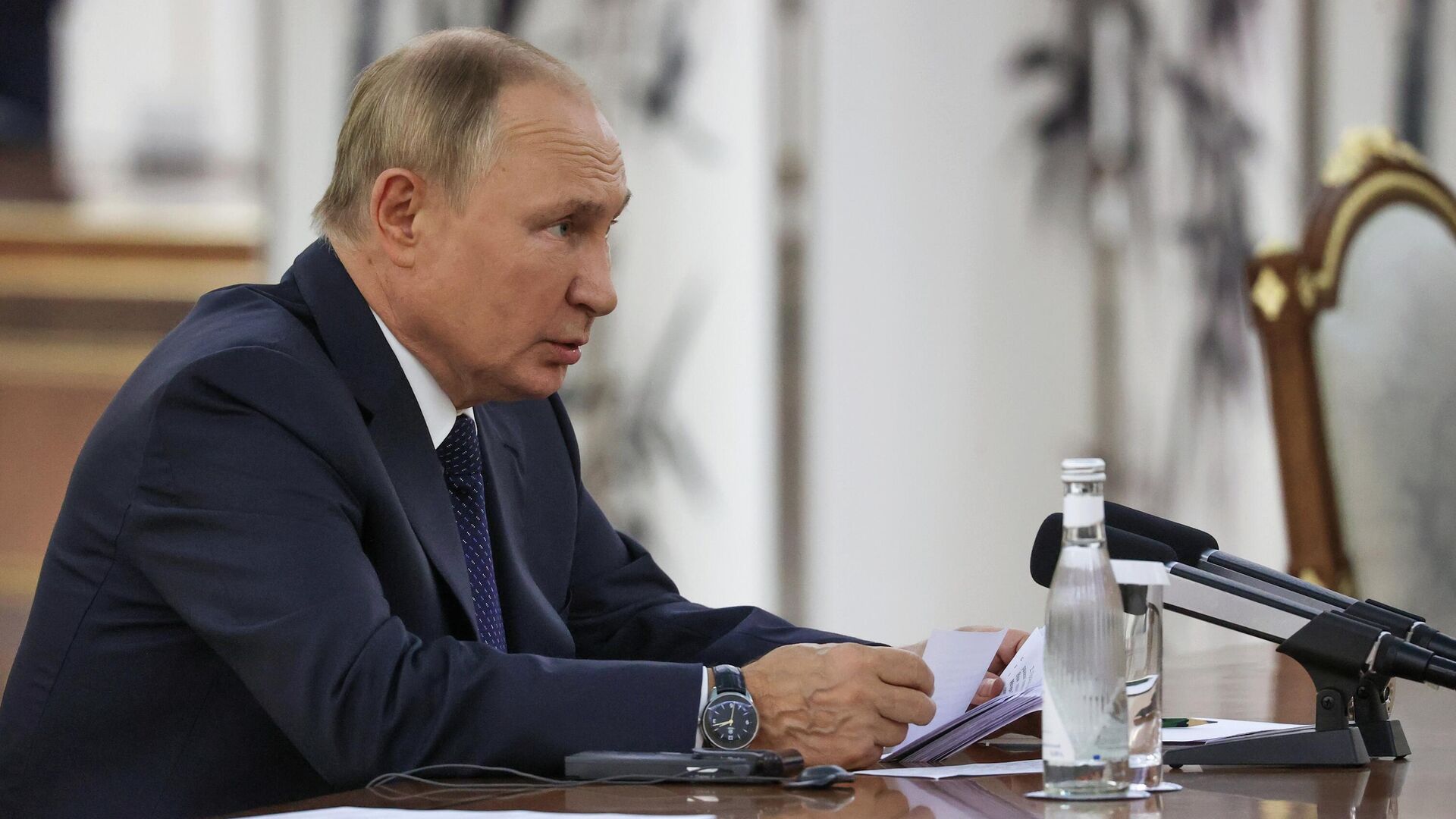https://sputnikglobe.com/20221008/russia-building-up-export-potential-ready-to-assist-poorest-countries---putin-1101644481.html
Russia Building Up Export Potential, Ready to Assist Poorest Countries - Putin
Russia Building Up Export Potential, Ready to Assist Poorest Countries - Putin
Sputnik International
MOSCOW, (Sputnik) - Russian President Vladimir Putin has congratulated Russians on Agriculture and Processing Industry Workers’ Day, emphasizing that Russia’s... 08.10.2022, Sputnik International
2022-10-08T21:27+0000
2022-10-08T21:27+0000
2022-10-08T21:27+0000
russia
russia
https://cdn1.img.sputnikglobe.com/img/07e6/09/0f/1100813922_0:142:3013:1838_1920x0_80_0_0_2a6cf09c14d64bc24e2c544cce9a9385.jpg
"We are fully meeting the domestic demand for basic, essential products and providing reliable food security. Moreover, we are building up our export potential, and – I’d like to emphasize this – we are ready to make our contribution to overcoming global food challenges and provide the necessary assistance to the poorest, developing nations," Putin said in a Sunday statement.The Russian President admitted that work under Western sanctions pressure poses new challenges, but said that all issues in the agriculture sector will be addressed with the support of the state.Western countries have increased sanctions pressure on Russia since the start of the special operation in Ukraine. Disruptions in supply chains have led to higher fuel and food prices across the EU, driving inflation to record levels and causing the cost of living to soar.On July 22, Russia and Ukraine signed an UN-brokered agreement to provide a humanitarian maritime corridor for ships exporting grain and fertilizer from Black Sea ports. The Istanbul-based Joint Coordination Center (JCC) was set up to monitor the implementation of the initiative, including ensuring that cargo ships do not carry unauthorized goods or personnel.Since the signing of the agreement, 28% of the grain shipments from Ukraine went to low-income countries and 44% to high-income countries, according to a September report from the JCC.
russia
Sputnik International
feedback@sputniknews.com
+74956456601
MIA „Rossiya Segodnya“
2022
Sputnik International
feedback@sputniknews.com
+74956456601
MIA „Rossiya Segodnya“
News
en_EN
Sputnik International
feedback@sputniknews.com
+74956456601
MIA „Rossiya Segodnya“
Sputnik International
feedback@sputniknews.com
+74956456601
MIA „Rossiya Segodnya“
russia
Russia Building Up Export Potential, Ready to Assist Poorest Countries - Putin
MOSCOW, (Sputnik) - Russian President Vladimir Putin has congratulated Russians on Agriculture and Processing Industry Workers’ Day, emphasizing that Russia’s export potential is getting stronger and it is ready to help developing nations.
"We are fully meeting the domestic demand for basic, essential products and providing reliable food security. Moreover, we are building up our export potential, and – I’d like to emphasize this – we are ready to make our contribution to overcoming global food challenges and provide the necessary assistance to the poorest, developing nations," Putin said in a Sunday statement.
The Russian President admitted that work under Western sanctions pressure poses new challenges, but said that all issues in the agriculture sector will be addressed with the support of the state.
"Agriculture, a key sector of the Russian economy, is showing convincing, strong results year in and year out. Thus, this year we expect a record harvest of grain – about 150 million tonnes, including some 100 million tonnes of wheat," Putin stressed, adding that "livestock production is also on the rise."
Western countries have increased sanctions pressure on Russia since the start of the special operation in Ukraine. Disruptions in supply chains have led to higher fuel and food prices across the EU, driving inflation to record levels and causing the cost of living to soar.
On July 22, Russia and Ukraine signed an UN-brokered agreement to provide a humanitarian maritime corridor for ships exporting grain and fertilizer from Black Sea ports. The Istanbul-based Joint Coordination Center (JCC) was set up to monitor the implementation of the initiative, including ensuring that cargo ships do not carry unauthorized goods or personnel.
Since the signing of the agreement, 28% of the grain shipments from Ukraine went to low-income countries and 44% to high-income countries, according to a September report from the JCC.


